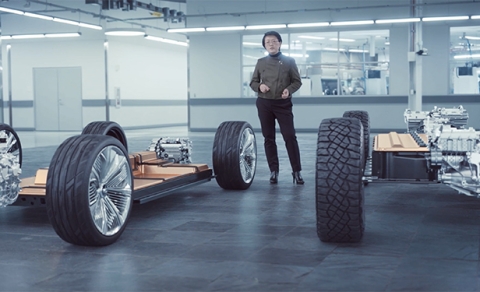Five Big Technology Trends Shaping Trade Shows and Events

When General Motors rolled out its new electric battery capabilities at CES last month, the car advancement was only part of the story. The presentation, viewed by thousands at the entirely virtual trade show, was a case study for how the world will consume information in the future.
INVNT, an innovative branding and events company, partnered with GM to create virtual environments to simulate the car company’s research and development laboratory. The keynote team used 3-D imagery to take a deep d(r)ive into the inner workings of the technology.
Making this all possible was a mixed-reality LED arena, powered by Epic Games Unreal Engine. The immersive presentation told a powerful story geared toward an audience keenly aware of how technology changes the world. The customization INVNT demonstrated for both its client, GM, and the audience, is worth taking note.
“Our strategy was to create an experience which was relevant to the CES audience, by balancing high-end production values with a storytelling methodology that would highlight GM’s transformational approach to electrification,” explained Jerry Deeney, chief client officer at INVNT’s parent company, [INVNT GROUP].
The evolution of augmented and virtual reality, and what the means for communication/marketing going forward, is just one of the big-picture changes CES displayed. While the event did not necessarily showcase as many new products as it has in years past, it served as a reference check for how companies are changing the way they do business through technology.
Among the other highlights:
- 5G is going to the framework for the 21st century. This was the thesis behind Verizon CEO Hans Vestberg’s presentation. It’s hard to argue, as the adoption to the higher-speed and more powerful network opens possibilities previously only imagined. In essence, it will enable exhibitors and vendors to develop new innovations for interactive experiences, both for in-person and virtual events. The deployment of broadband and 5G to underserved rural areas will be game-changing, CTA President and CEO Gary Shapiro said at the trade show.
- Reimagined smart cities. The smart home is so 2016. Now, we are talking about localities adopting technologies to cut costs and increase sustainability. And with the importance of tracking the number of people in one place for health and safety reasons, look for major advancements at convention centers and other large venues in the near future. Also watch out for new-age kiosks and dashboards to engage visitors and passersby. Self-driving cars are part of this trend. It’s such a major leap forward that Indy Autonomous Challenge will unveil the world's first autonomous race car at the Indianapolis Motor Speedway, as announced at CES. The advancement will drive the way forward for transportation across the board.
- AI and its many applications. As COVID-19 showed, being caught flat-footed by a global challenge can be debilitating. But advancements in artificial intelligence should leave us better prepared for the next great disruptor, noted Bridget Karlin, IBM’s global chief technology officer. AI can add up to $16 trillion to the global economy through the compilation of important data. It will help us adapt to how we live and work. “AI is one of the great opportunities of our time. AI can make the imagined possible.” Look for major advancements in social, economic and environmental categories over the next decade.
- Cloud computing is the great connector. Again, not an entirely new idea, but the technology is much further along than we can imagine. The pandemic made remote working a common practice, and the time of spending five days in an office may never return. Uniting organizations will be cloud computing so that employees across time zones and continents can share information and collaborate. This will also help industries diversify leadership and create opportunities for the entire workforce. On a smaller scale, you may be able to toss that jump drive in the not-too-distant future.
Photo courtesy of INVNT.
Don’t miss any event-related news: Sign up for our weekly e-newsletter HERE and engage with us on Twitter, Facebook, LinkedIn and Instagram!


Add new comment